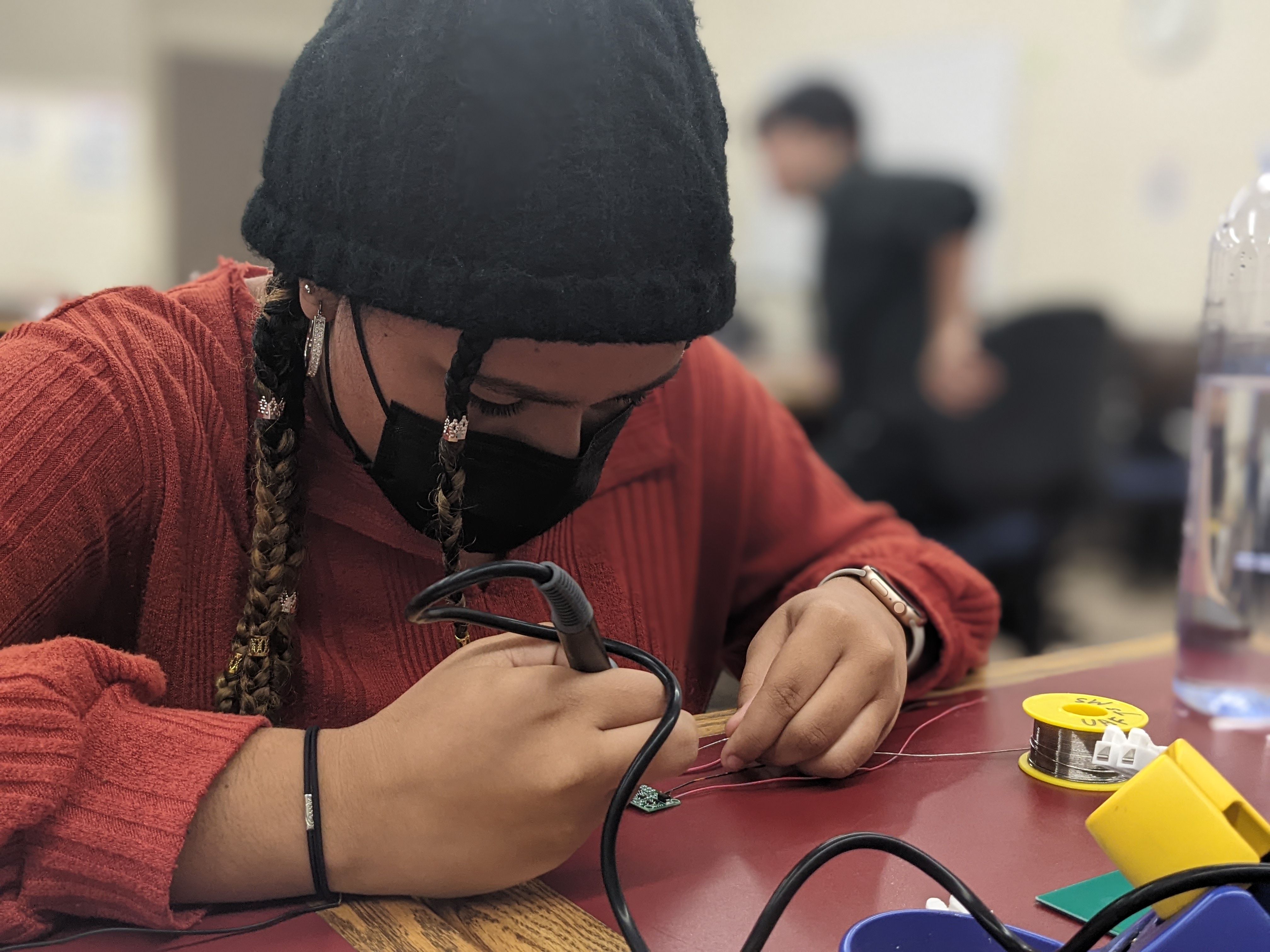T3 Energy Clubs Have an Electrifying Experience in Idaho

How do you inspire and develop the next generation of energy leaders and champions within a community?
This is a question ACEP, and the Alaska Teaching Through Technology Program are working together to try and answer. This past summer, the UAF Upward Bound program partnered with the University of Hawaii’s Maui Upward Bound program to run a combined five-week program called the 2022 One Ocean program. This program brought together students from Hawaii and Alaska for a three-week hands-on workshop in Alaska, then together traveling to Maui, Hawaii, for the remaining two-week program.
During the One Ocean program, an energy track focused on developing student understanding of energy, energy systems, microgrids and renewables. Students received reverse pitches from energy researchers, leading to the students’ challenges: wrapping their heads around energy concepts, understanding and defining problems, and ultimately developing solutions to their defined problems.
At the end of the five-week program, the students expressed interest in continuing to develop their projects, expanding their understanding of energy problems and finding ways to stay connected. This led to the development of a T3 One Ocean Energy Club. As a way to grow their understanding of energy and power related to microgrids, club students are working through the recently released EdX course “Foundations of Microgrids.”
Last weekend, the T3 Energy Club members rendezvoused at a workshop hosted by Idaho Upward Bound partners at Boise State University to expand their understanding of energy systems and technologies. They organized themselves into teams dedicated to solving some pressing energy issues facing their own communities.
The students, familiar with problem-based learning, defined and refined a set of problem statements. They landed on their top level T3 Energy Club problem statement: “How might we integrate efficient energy solutions and concepts to help/motivate our communities?”
Working together, the students set goals and formed teams to work in areas including education, research, hands-on projects, community engagement and storytelling.
ACEP is excited to support and follow the journey these students have begun. The students are eager to continue this partnership and teaming between Alaska and Hawaii. They will work with the T3 Alliance, Alaska T3 and ACEP to identify ways to get the needed resources to support their efforts, projects and funding for future workshops, so they can stay connected and continue to iterate and expand their energy learning quest.
For more information on this program, please contact George Reising at gbskrabareising@alaska.edu.
Makayla Du Bose solders a solar panel to a power distribution board. Photo by Dayne Broderson.


